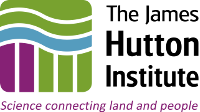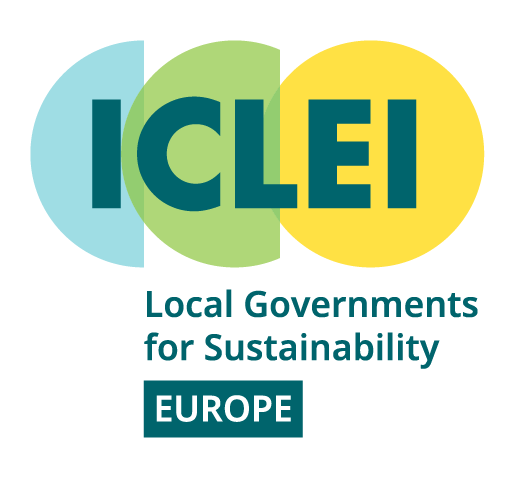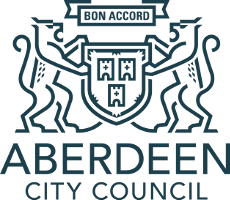PROJECT PARTNERS
Norwegian University of Science and Technology
Norwegian University of Science and Technology (NTNU) is Norway’s largest university with more than 40,000 students and more than 7,100 employees. It has an international focus, with headquarters in Trondheim and campuses in Ålesund and Gjøvik. NTNU has a main profile in science and technology, a variety of programmes of professional study, and great academic breadth that includes the humanities, social sciences, economics, medicine, health sciences, educational science, architecture, entrepreneurship, art disciplines and artistic activities. NTNU is very active in international projects, currently participating in more than a hundred H2020 projects. The Department of Psychology is one of the largest departments at NTNU, hosting both clinical and non-clinical psychology training courses and a research group on ‘Consumption, Environment, and Traffic’, which is coordinating the H2020 projects SMARTEES and ECHOES.
James Hutton Institute
The James Hutton Institute combines strengths in crops, soils and land use and environmental research, and makes a major contribution to the understanding of key global issues, such as food, energy and environmental security, and developing and promoting effective technological and management solutions to these. The Institute is an internationally networked organisation and operates from multiple sites, including two main ones in Scotland at Aberdeen and Dundee. It employs more than 500 scientists and support staff, making it one of the biggest research centres in the UK and the first of its type in Europe. The Institute is one of the Scottish Government’s main research providers in environmental, crop and food science and has a major role in the Scottish knowledge economy. The Institute brought together the former Macaulay Land Use Research Institute and the Scottish Crop Research Institute on 1 April 2011.
Knowledge & Innovation Srls
Knowledge & Innovation Srls (K&I) was established by a group of social scientists working in several research organisations. They have been carrying out, among others, around 30 European projects on issues such as socialisation of the scientific research, public engagement and responsible research and innovation, gender and science, environmental sustainability, ecological responsibility and energy transition, privacy and security, poverty, social exclusion and social polarisation, etc. The mission of K&I is to increase the relevance and effectiveness of the social sciences in interpreting the profound processes of change that are affecting contemporary societies, understanding how they are evolving over time, identifying connected societal stress and investigating available options and tools for their effective management.
University of A Coruña
The University of A Coruña is a relatively new university with around 25,000 students. It was created in the early 1990s when it was separated from the 500-year-old University of Santiago de Compostela. The University hosts more than a hundred research groups. Among those, the interdisciplinary People-Environment Research Group is one of the most productive in research in the field of environmental psychology and has a long trajectory of world-class research on the interactions between the natural and built environment and human behaviour. Its areas of expertise include the psychological dimensions of social change and transitions to sustainable lifestyles, social innovation, environmental risk research, etc. For the last ten years, the group has coordinated and participated in numerous national and European research projects: LOCAW, GLAMURS, TRANSIT, CONNECTING NATURE and SMARTEES. Furthermore, the interdisciplinary research group LIDIA, with its extensive expertise in artificial intelligence and machine learning, is also involved in the SMARTEES project.
Energy Institute at Johannes Kepler University Linz
The Energieinstitut an der Johannes Kepler Universität Linz (EI-JKU) is a not-for-profit research organisation consisting of about 35 scholars whose focus of inquiry is the energy sphere. The institute employs a multidisciplinary structure of three departments – Energy Economics, Energy Law, and Energy Technology. The combination of these core disciplines allows for a comprehensive analysis that results in practical and policy-oriented solutions to the challenges that the European energy sector faces. Examples of its work include the analysis of ecological and economic effects of new technologies, evaluation of legislation developments, and optimisation of strategies for CO2 abatement schemes and policies for energy efficiency uptake. EI-JKU is deeply rooted in the European research community, publishes in high-level journals and possesses experience as both partner and coordinator in ten European research projects in the EU 7th Framework Programme and Horizon2020.
University of Timisoara
Universitatea de Vest din Timișoara (UVT) / West University of Timişoara (WUT) is the main higher education institution and research pole in Western Romania. Its community comprises roughly 16,000 students and over 700 academic staff. Following the Romanian Ministry of National Education classification, in 2011 WUT was ranked the fourth among the comprehensive universities in Romania. Moreover, in 2013, WUT was the only university in Romania included in the Top 200 universities worldwide by QS Rankings World Rankings by Subject. It is a comprehensive university fostering a multi- and inter-disciplinary approach to research and higher education with a clear focus on internationalisation. The WUT is engaged in European Union’s framework programmes for research and technological development and has experience in coordinating large-scale research projects both at national and international levels.
University of Groningen
Innovative, research-driven and rooted in the number-one knowledge hub of the Northern Netherlands, the University of Groningen is an internationally oriented university with 30,000 students. Founded in 1614, it now comprises eleven faculties, nine graduate schools, 27 research centres and institutes, and offers over 200 degree programmes. The University of Groningen is proud to be among the global elite with a classification in the top 100 of the Shanghai Academic Ranking of World Universities and the British Times Higher Education (THE) World University Rankings. Research within the University of Groningen concentrates on three main focus areas – Energy, Healthy Ageing and Sustainable Society. With these themes, the University is looking to bridge the gap between science and society, conducting research of immediate social relevance and actively cooperating with partners from business, public organisations and the government, within and beyond the region.
ICLEI European Secretariat
ICLEI - Local Governments for Sustainability is the world’s leading network of local and regional governments committed to sustainable development. Today, ICLEI has more than 1,000 local government members, with around 160 in Europe. ICLEI’s European Secretariat has a wide range of expertise and extensive experience in European project coordination and partnering. It provides technical consulting, training, thematic events and information services to build capacity, share knowledge and support local and regional governments in implementing sustainable development. The organisation’s basic premise is that locally designed initiatives can provide an effective and cost-efficient way to achieve local, regional, national and global sustainability objectives.
SAMSØ Energy Academy
Samsø Energy Academy is a non-profit organisation working towards sustainable community development and showcasing Samsø island experience as an example. The Academy works through networks comprising universities, private companies and local governments as well as contributes to the implementation of the EU framework programs and cooperates with international organisations. Its main areas of expertise are education and communication related to energy, climate change and sustainable resources, and it hosts workshops, seminars, talks and exhibitions on these topics.
Aberdeen City Council
Aberdeen City Council delivers services to more than 114,000 households, 10,000 businesses and directly to a population in excess of 229,000. The Council is leading an unprecedented period of change in the city – and the organisation is also transforming to meet the challenges and embrace the opportunities of the future, with a focus on innovation and emerging technologies. The authority is a driving force behind a Regional Economic Strategy which has diversification and internationalisation at its core.
Urbanisland
Urbanisland is a small consultancy working with environmental innovation to improve the quality of life in communities in urban, rural and island contexts and contribute to sustainable economic development. In the focus of its work are areas with high socio-economic challenges. Urbanisland searches for new long-term solutions and business models to address those challenges while relying on a collaborative approach to community development.
























